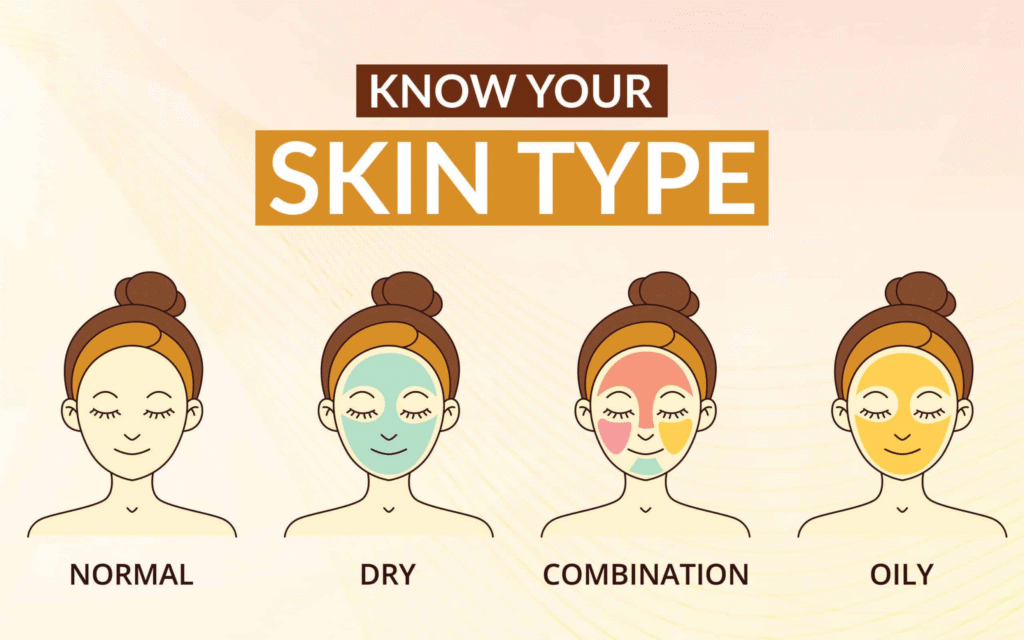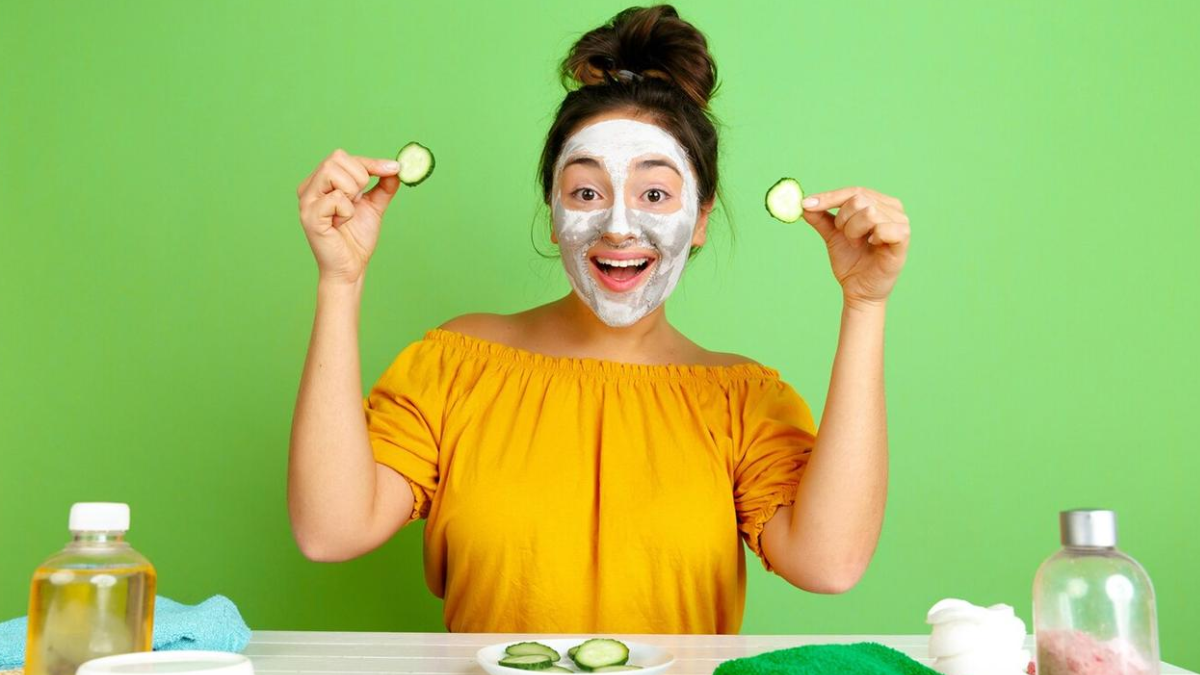Introduction
Healthy, radiant, and youthful skin isn’t a result of luck — it’s a reflection of consistent care, smart habits, and understanding how your skin works. While beauty trends come and go, one truth remains timeless: great skin starts with good skincare.
With pollution, stress, poor diet, and constant exposure to digital screens, our skin faces more challenges today than ever before. But the good news is, with the right skincare routine and scientifically backed habits, you can protect, repair, and rejuvenate your skin at any age.
In this article, we’ll explore essential skincare tips that promote lasting health and natural glow — blending science, simplicity, and self-care.
1. Know Your Skin Type

Before buying any product or starting a skincare routine, the first step is understanding your skin type. Using the wrong products can do more harm than good.
The Main Skin Types:
- Normal Skin: Balanced oil and moisture levels, few blemishes.
- Oily Skin: Produces excess sebum, prone to acne and shine.
- Dry Skin: Feels tight, rough, or flaky.
- Combination Skin: Oily in the T-zone, dry on the cheeks.
- Sensitive Skin: Easily irritated by products or environmental changes.
Once you identify your type, you can choose the right cleansers, moisturizers, and treatments designed specifically for your skin’s needs.
2. Follow a Consistent Skincare Routine
Consistency is the secret to long-term skin transformation. A basic, daily routine should include four essential steps:
Morning Routine
- Cleanser: Removes oil and sweat accumulated overnight.
- Toner: Balances the skin’s pH and preps it for moisture.
- Moisturizer: Hydrates and strengthens the protective barrier.
- Sunscreen: Shields from UV damage — the biggest cause of aging.
Night Routine
- Makeup Remover/Cleanser: Cleans dirt, oil, and makeup.
- Treatment Serum: Target issues like pigmentation or wrinkles.
- Night Cream or Sleeping Mask: Deeply hydrates and repairs while you rest.
Remember, skincare works over time, not overnight. Give each product at least 4–6 weeks to show results.
3. Prioritize Sun Protection
If there’s one step you can’t skip — it’s sunscreen. UV rays cause premature aging, dark spots, wrinkles, and even skin cancer.
Key Tips:
- Use broad-spectrum SPF 30 or higher every morning.
- Reapply every 2–3 hours, especially outdoors.
- Don’t forget your neck, ears, and hands — common areas people miss.
- Even on cloudy days or indoors (with screens), UV rays can affect skin health.
Sun protection is the most powerful anti-aging treatment available — simple, affordable, and essential.
4. Exfoliate Regularly (But Gently)
Dead skin buildup causes dullness and clogged pores. Exfoliation removes these dead cells, revealing fresh, glowing skin beneath.
Types of Exfoliation:
- Physical: Scrubs or brushes that manually remove dead cells.
- Chemical: Acids like AHA (glycolic acid) and BHA (salicylic acid) that dissolve dead cells and unclog pores.
Pro Tip:
- Exfoliate 1–2 times per week depending on skin type.
- Avoid harsh scrubbing — it can irritate and damage the skin barrier.
Regular exfoliation also helps serums and moisturizers absorb more effectively.
5. Keep Your Skin Hydrated

Hydration is the foundation of youthful skin. Without moisture, your skin looks tired, rough, and aged.
Ways to Boost Hydration:
- Drink plenty of water (8–10 glasses a day).
- Use a hydrating serum with hyaluronic acid.
- Choose a moisturizer suited to your skin type (gel for oily skin, cream for dry).
- Use a humidifier in dry environments to maintain skin moisture.
Hydrated skin appears plumper, smoother, and more radiant.
6. Feed Your Skin from Within
Great skin starts in the kitchen. What you eat directly impacts how your skin looks and feels.
Skin-Boosting Foods:
- Fruits and Vegetables: Rich in antioxidants (vitamins A, C, and E).
- Omega-3 Fatty Acids: Found in salmon, flaxseeds, and walnuts — they strengthen the skin barrier.
- Green Tea: Fights inflammation and aging.
- Water-Rich Foods: Cucumbers, oranges, and tomatoes support hydration.
Avoid excessive sugar, alcohol, and processed foods, as they cause inflammation and breakouts.
7. Get Enough Sleep — “Beauty Sleep” Is Real
Your skin repairs and regenerates itself while you sleep.
Lack of rest leads to dark circles, puffiness, and fine lines.
Tips for Skin-Friendly Sleep:
- Aim for 7–8 hours of quality sleep each night.
- Sleep on a silk pillowcase to reduce friction and wrinkles.
- Keep your room cool, dark, and quiet for optimal rest.
Good sleep promotes cell turnover and boosts collagen production — nature’s anti-aging secret.
8. Manage Stress for Better Skin
Stress hormones like cortisol can cause acne, dullness, and premature aging.
Try These Stress-Relief Techniques:
- Meditation or yoga
- Deep breathing
- Exercise
- Journaling
- Listening to music or spending time in nature
A calm mind leads to calm, glowing skin.
Remember — self-care is skincare.
9. Don’t Overload Your Skin
More products don’t always mean better results. Mixing too many actives — like retinol, acids, and vitamin C — can irritate your skin.
Keep It Simple:
- Stick to 3–5 core products.
- Introduce new items one at a time.
- Always patch-test before applying to your face.
Balance is key — let your skin breathe and adjust naturally.
10. Visit a Dermatologist When Needed
While home care works for most, some conditions like persistent acne, pigmentation, eczema, or rosacea need professional guidance.
Dermatologists can:
- Prescribe stronger treatments safely.
- Recommend clinical facials, peels, or laser therapies.
- Help customize your skincare routine based on medical needs.
Investing in professional advice prevents long-term damage and ensures your skin stays healthy for years.
11. The Role of Consistency and Patience
Skincare is not a race — it’s a routine.
Consistency brings results; impatience brings irritation.
Follow your routine daily, protect your skin, eat well, and rest — and you’ll see transformation over time.
The healthiest skin is not perfect; it’s balanced, nourished, and cared for.
Also Read:Healthy Skin Starts Here: Simple Routines for Lasting Radiance
Conclusion
Healthy, radiant, and youthful skin is not about expensive products or filters — it’s about science, self-care, and commitment.
By understanding your skin type, protecting it from sun damage, staying hydrated, eating clean, and following a simple but consistent routine, you can unlock your skin’s natural glow.
Your skin reflects how you treat it — so nourish it with love, patience, and protection every single day. Because when your skin is healthy, your confidence shines effortlessly.
FAQs
Q1. What is the most important step in skincare?
Sunscreen — it prevents premature aging, sunspots, and wrinkles.
Q2. How often should I exfoliate my skin?
1–2 times a week, depending on your skin type and sensitivity.
Q3. Does drinking water really help the skin?
Yes, hydration helps maintain elasticity and supports natural detoxification.
Q4. Can I use the same products morning and night?
Some can, but night routines often need richer hydration and active treatments like retinol.
Q5. How long does it take to see results from skincare?
Most products take 4–6 weeks of consistent use to show visible results.

